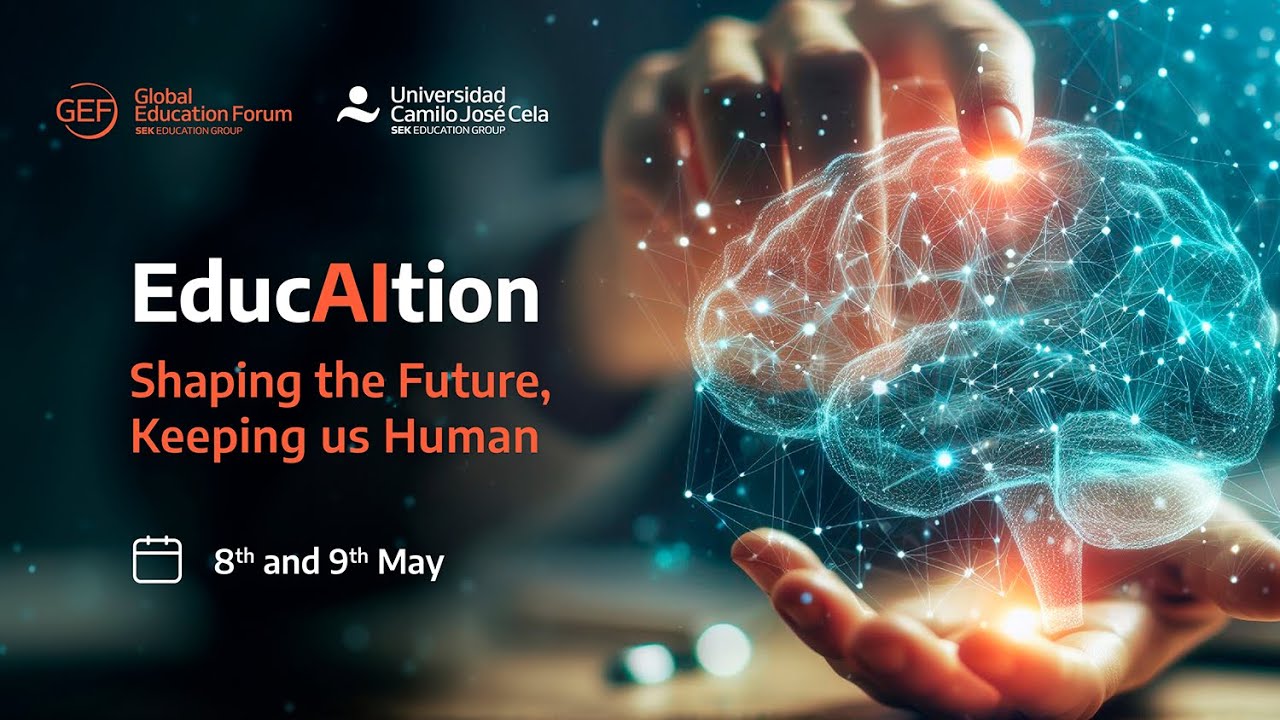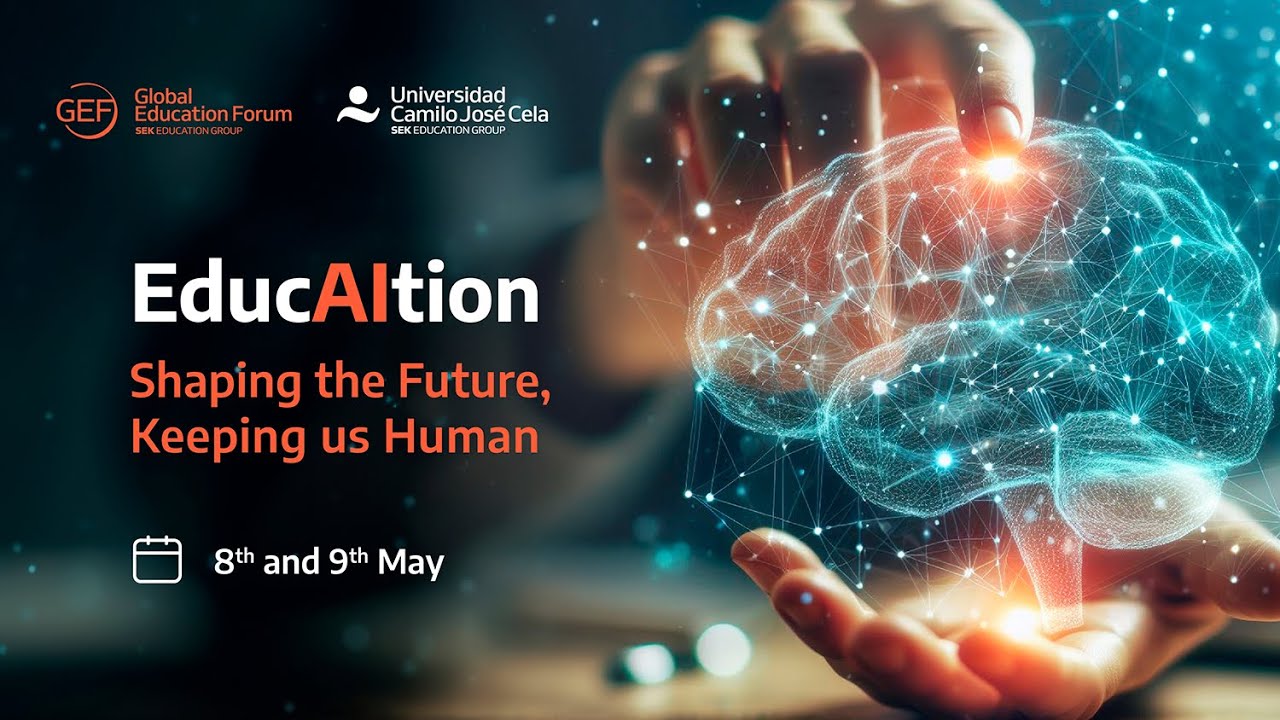Panel: The Importance of AI-Literacy for AI in Education
Summary
TLDRThe panel discussion delves into the critical importance of AI literacy in education, emphasizing the need to understand AI's role in daily life and its impact on learning. Experts from diverse backgrounds stress the significance of teaching AI responsibly, including its ethical considerations, and the necessity for students to be AI literate. They explore ways to integrate AI literacy into curricula, the importance of family engagement, and the challenges of keeping pace with rapidly evolving technology.
Takeaways
- 📚 The panel discussion emphasized the importance of AI literacy in education and the need to understand AI's role in learning and everyday life.
- 🌟 Laura Allen highlighted the comparison between traditional literacy and AI literacy, stressing the need to understand AI's terminology, concepts, and the implications of data usage.
- 👨🏫 Stephanie Adragna discussed the significance of family involvement in fostering AI literacy, suggesting that joint engagement can facilitate a better understanding of AI technologies.
- 🔍 Dru Long emphasized the unique aspects of AI, such as its active decision-making processes, which differentiate it from other technologies and necessitate a certain level of AI literacy.
- 🤖 Tyron Young, from a practitioner's perspective, focused on the ethical considerations of AI and the importance of having a checklist for evaluating new AI technologies.
- 👨🎓 The conversation underscored the responsibility educators have in teaching AI literacy and the need to integrate it with critical thinking and ethical considerations.
- 👥 There was a consensus on the importance of interdisciplinary approaches to AI literacy, combining technical knowledge with social, ethical, and creative perspectives.
- 👶 The panelists agreed that AI literacy should start from an early age, with discussions around AI ethics and understanding integrated into curricula at all levels.
- 🏫 There was a call for more transparency from AI developers and for educational institutions to provide resources that help students understand the implications of AI technologies.
- 💡 The discussion highlighted the need for hands-on, embodied learning experiences with AI to help demystify the technology and make it more accessible for learners.
- 🔗 The panelists provided various resources and publications for further exploration of AI literacy, emphasizing continuous learning and adaptation to the rapidly evolving field of AI.
Q & A
What is the main focus of the panel discussion in the provided transcript?
-The main focus of the panel discussion is AI literacy, specifically how AI is implemented in education and the importance of understanding AI as educators, researchers, and students.
What is the role of Laura Allen in the context of this panel?
-Laura Allen is an assistant professor at the University of Minnesota, and she contributes to the panel with her research background at the intersection of AI literacy, focusing on text comprehension, text production, and developing adaptive strategy instruction and feedback for students.
What does Stephanie Adragna bring to the panel discussion?
-Stephanie Adragna, a PhD candidate at the University of Washington, brings her research on AI literacy education to the panel, emphasizing the importance of guiding young people's interaction with AI and ensuring they are not only consumers but also creators of technology.
What is Drury Long's perspective on AI literacy?
-Drury Long, an assistant professor at Northwestern, discusses the importance of AI literacy as a set of competencies that enable individuals to critically evaluate AI technologies, communicate and collaborate effectively with AI, and use AI as a tool in various settings.
What is Tyron Young's view on AI literacy in the context of education?
-Tyron Young, a senior manager for research and development at Digital Promise, emphasizes the need for a checklist to evaluate the ethical considerations and potential risks and rewards of AI technologies, especially in educational settings.
How does the panel view the importance of AI literacy in everyday life?
-The panel views AI literacy as crucial in everyday life due to AI's active role in decision-making processes, necessitating a basic understanding of how AI works to make informed decisions about its use and the data shared with AI systems.
What is the significance of the panelists' diverse backgrounds in the discussion?
-The diverse backgrounds of the panelists, including academia and industry, provide a multifaceted perspective on AI literacy, covering aspects from theoretical understanding to practical implementation and ethical considerations in various contexts.
What is the panel's stance on the integration of AI in educational technologies?
-The panel acknowledges the potential benefits of AI in educational technologies but stresses the importance of transparency, understanding the implications of AI use, and maintaining spaces for socialization and collaboration among students.
How does the panel address the ethical considerations of AI in the classroom?
-The panel suggests that ethics should not be an afterthought but an integral part of AI literacy, starting with questions about the implications and potential consequences of using AI in educational settings.
What resources or activities does the panel recommend to promote AI literacy?
-The panel recommends various resources and activities, such as the book 'Critically Conscious Computing', which provides teaching units and activities to foster AI literacy, including critical thinking about new technologies.
What is the panel's opinion on the need for AI literacy in university computer science programs?
-The panel believes that AI literacy, including understanding machine learning and its ethical implications, should be a core part of computer science education, not just an elective or add-on course.
Outlines

This section is available to paid users only. Please upgrade to access this part.
Upgrade NowMindmap

This section is available to paid users only. Please upgrade to access this part.
Upgrade NowKeywords

This section is available to paid users only. Please upgrade to access this part.
Upgrade NowHighlights

This section is available to paid users only. Please upgrade to access this part.
Upgrade NowTranscripts

This section is available to paid users only. Please upgrade to access this part.
Upgrade NowBrowse More Related Video

GEF Madrid 2024: AI and Lifelong Learning

GEF Madrid 2024: Navigating AI Legal Frontiers

Lesson 7: Opportunities and Threats in Media & Information Literacy | Media and Information Literacy

GEF Madrid 2024: Reporting the Future: The Impact of AI on Education Journalism

What is Visual Literacy?

17. Literasi dan Etika Kecerdasan Artifisial - Profesi di Bidang Kecerdasan Artifisial - KKA Fase E
5.0 / 5 (0 votes)